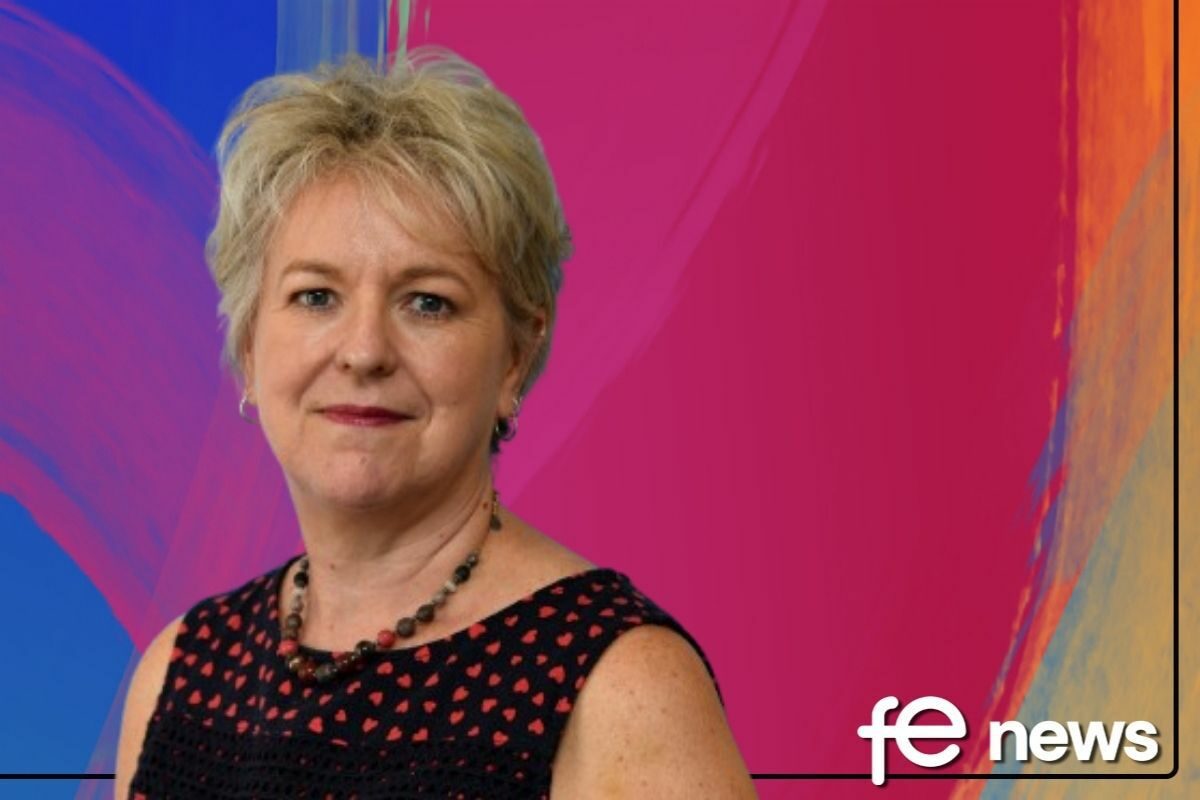DCYP COVID-19

This Directorate Children and Young People (DCYP) COVID-19 page provides important advice and updates for service parents.
British Defence Staff United States (BDSUS) / DCYP Educational information awareness update as at 5 August 2020
The impact of the COVID-19 pandemic has been globally unprecedented and the situation remains uncertain. The COVID-19 pandemic in the US is still widespread and shows no signs of reducing in the near term (0-3 months). The pandemic continues to impact all aspects of day to day life and we know families are understandably concerned about children’s education for the forthcoming 20/21 school year. Defence recognises this complicates decision making for those personnel and their families considering or preparing to deploy to the US soon and that for many the situation will be deeply unsettling.
Due to the size of the US and delegation of decision making both to and below State level, varying approaches will be seen in different locations with a mixture of classroom, home and hybrid leaning. All States and school districts are routinely and regularly reviewing the situation and when State health authorities consider it safe and appropriate, schools will re-open. The unpredictability of this virus makes it difficult to predict when this will happen in each location. Decision making is also politically influenced.
BDSUS, together with the MOD’s Directorate for Children and Young People (DCYP), are committed to doing everything we can to provide advice and guidance during this time to allow MOD military and civilian parents to make informed decisions.
DCYP have conducted an initial review of the planned education provision for the Fall (Autumn) Semester in areas with the highest proportion of MOD children. The primary concern of all school districts was the safety of children and staff, with their positions being informed by public health agencies. DCYP found that in all but one location the published planning for online provision established by school districts appeared adequate, meaning that it meets a level that ensures children have opportunities to engage with learning to a sufficient standard. Insufficient information was available from Clark County, Nevada to enable an informed judgement at the time of assessment.
Notwithstanding this assessment, the effect of COVID-19 on education for the Fall Semester 20/21 has been significant. Nearly all States will be required to maintain virtual lessons or adopt a blended learning format. While at present there are also no guarantees that the UK Autumn academic term will be uninterrupted, and comparisons between the US and UK are difficult to make due to this uncertainty, the transition to a new education system is challenging for children in the best of circumstances. With the current context of remote learning in many locations likely until at least the beginning of 2021, and potentially for the full academic year, schools are limited in their ability to provide new students with the normal support and induction, thereby increasing the risk of unsuccessful transitions.
It is therefore important for Service and UKBC parents to carefully consider whether they continue accompanied with a planned assignment to the US, if they have children of school age.
To mitigate this risk, DCYP have identified an online tutoring programme called Tutor.com, utilised by the US Department of Defence for military families, that provides support for students in grades K-12. This tutoring service can be more flexible than traditional tutoring models, in that it responds to need rather than a rigid timetabling of sessions each week. BDSUS is urgently scoping the potential for our military and UKBC personnel to have temporary funded access to this learning capability for September. More advice on this will hopefully follow.
Parents should fully familiarise themselves with the planned format of learning being adopted by their receiving school district. They should also be prepared to support their children with home learning on arrival (as they will have been doing in the UK earlier this year).
For military personnel, parents may decide to explore other avenues for schooling their children such as CEA, retention of current service accommodation for the family etc. BDSUS leadership will be writing to senior leaders within MOD and the single Services to encourage flexibility wherever possible, although decisions will inevitably need to be made on a case-by-case basis. Advice should be sought on these issues from the individual’s own chain of command. Service personnel also have interim arrangements for additional allowances for children already in boarding school because of COVID-19, as per the Defence People AF Remuneration directed letter dated, 4 Jun 2020.
We also recognise some parents will wish to investigate private education options within the US, for which two thirds funding is available for UKBC parents. However, it should be noted that continuity of ‘in-person’ tutoring is also not guaranteed in private schools and, due both to an increased demand and COVID-19 mitigation measures, we know that many private schools in the areas where we have personnel are no longer offering places for the 20/21 academic year.
Further advice for both Service Personnel and UKBC can be sought in the first instance from CEAS at DCYP-CEAS[email protected] (CEAS helpline: 01980 618244 or 94344 8244) or BDSUS Educational Team: BDSUS[email protected]Continuity of Education Allowance (CEA) for summer term 2020
DCYP update regarding the Children’s Education Advisory Service (CEAS)
Due to the impact of COVID-19, the Children’s Education Advisory Service (CEAS) team are now predominantly working from home. Staffing capacity will naturally fluctuate for the foreseeable future, which will inevitably affect response rates, so your patience is greatly appreciated.
There is no one to staff the phones so you are asked to email the CEAS group mailbox: DCYP-CEAS[email protected].
More information can be found on the CEAS pages.
Advice for recipients of Continuity of Education Allowance (CEA)
The following guidance is in response to Coronavirus (COVID-19). These arrangements are effective immediately and will remain in place until further notice.
Under the current circumstances it has become necessary to consider introducing some flexibility into the current CEA regulations to reassure recipients that any deviation from CEA eligibility criteria caused directly by COVID-19 will not adversely affect their CEA eligibility.
Similarly, if a CEA recipient becomes liable for any additional school fees as a result of the outbreak, they will be able to make a case for reimbursement to the Pay & Allowances, Casework and Complaints Cell (PACCC). Any additional school fees for boarding will be considered separately from routine CEA claims.
1). The circumstances that may require a deviation from current rules include (but are not be limited to) the following:
1). a. The child is prevented from travelling to join their parents by governmental travel directive or the imposition of an isolation period; they are unable to join a designated guardian for valid reasons (for example. the guardian is self-isolating) and continue to be accommodated at their school. In this case, where the child remains at the school out with the normal academic term times, the CEA claimant will be entitled to reclaim any additional fees providing they are proportional to the routine boarding element of the school fees and only once authorised by the Chain of Command.
1). b. A spouse or civil partner is prevented from re-joining the service parent at their duty station by governmental travel directive or the imposition of an isolation period. The guidance on Accompanied Status (JSP752, Chapter 2, Section 1, Annex A) dictates that when a service person’s spouse/civil partner is absent from the Residence at Work Address for a period of 90 day or more during a 12-month period, their ongoing eligibility for CEA will be reviewed. In conducting the assessment, exceptional circumstances relating to COVID-19 are to be taken into account.
1). c. Where it is unsafe for a child to remain in the boarding environment at their school but they are able to convert to day-pupil status for the period covered by these arrangements. In this case, if the child is able to live with their parents or a designated guardian and travel to the school daily, the claimant may convert to CEA(Day) from the beginning of the next academic term. This can apply even if their child has not completed 3 consecutives academic terms at the same school. Should the school be required to close altogether then the child should stay with their parents or designated guardian. In these circumstances CEA eligibility will not be adversely affected. If the school/boarding facility should re-open mid-term after CEA(Day) is in issue, any additional boarding fees may also be reimbursed.
1). d. The child travels to an overseas area but is prevented from returning to their school because of a government travel directive, school closure or the imposition of an isolation period. Where the child is required to remain at the overseas duty station, the parent will continue to receive the additional Local Overseas Allowance until the child is able to return to their school and CEA eligibility will be unaffected.
1). e. Where a claimant is about to complete their service and a delay in examinations causes an extension to the Academic year. In these circumstances any additional school fees should be the subject of PACCC casework.
1). f. Where the impact of COVID-19 on critical stages of education (GCSEs, A-Levels, B-TECs and Scottish Nationals and Highers or equivalents) and schools recommend an extra year of CEA. In these circumstances, the reimbursement of any additional school fees should be the subject of PACCC casework with advice from CEAS.
1). g. Where a school closes following governmental direction; the length of closure is yet to be determined and the school fees are required to be paid before the start of the next academic term. In these circumstances CEA claimants should submit their claims and pay the school fees. Should claimants receive a refund from the school at later date the CEA element should be declared to PACCC.
Any other circumstances that arise should be considered on a case by case basis, through casework submitted to the PACCC taking into account the exceptional circumstances brought about by COVID-19. Any reimbursements from the school to the claimant that arise must declared.
2). It will be necessary for parents to keep up to date with the situation as it develops in the UK, as well as in host nation/overseas assignment areas for those assigned overseas and make decisions based on the facts and guidance published by the UK Government via www.gov.uk as well as any host nation guidance and arrangements.
3). Any additional cost to CEA as a result of COVID-19 are to be captured so the information is available if required at a later date.
MOD Assessment of Supportability Overseas (MASO) Overseas Educational Clearances and COVID-19
Here at DCYP, we are fully aware of the uncertainty and disruption families are facing during these unprecedented times. Schools in the UK have closed and only operating to support vulnerable and critical workers’ children. All MOD schools overseas have closed with the majority of staff delivering remote learning and many international schools overseas have also followed suit. Re-opening dates of MOD schools are being reviewed in line with host nation and local command direction. CEAS are continuing to work remotely with reduced staff numbers.
We are continuing to support our military and civilian families as best we can, however please be aware that processing educational clearances for overseas postings will be taking longer than usual. The flow of information gathering via the Educational Overseas Supportability (EOS) Form, may prove more difficult with the UK school closures. However, where possible CEAS will continue to process educational clearances for postings to non-MOD School areas and MOD schools will continue for children registering to their schools, as best they can.
Any children with additional needs, who may require further decisions on supportability to be made, will also take longer than the usual.
We are conscious that as serving personnel and as parents, there is a great deal of strain and pressure that you are having to deal with on a daily basis. We will continue to support as best we can during this COVID-19 outbreak.
We thank you for your understanding and most of all we thank you for how you are supporting our communities during this difficult time.
Assignment Freeze: impact on school placements and scheduled exams
Please see the document COVID-19 Assignment Freeze: impact on School placements and scheduled examinations (England only) (PDF, 151KB, 3 pages), which will be updated regularly.
Impact on CEA Special Educational Needs Addition (SENA)
Please see the letter Impact of COVID-19 on Continuity of Education Allowance (Special Educational Needs Addition) (PDF, 51.2KB, 1 page).
Impact on SENA funded sessions
Please see the question and answer sheet COVID-19: the impact on SENA funded sessions: questions and answers (PDF, 114KB, 3 pages).
Directed letter: School Children’s Visits (SCVs) Enhanced Interim Arrangements in response to COVID-19 for Service Personnel Assigned Overseas
Please read the Directed letter (update 1) – continuity of education allowance (CEA) – regulatory flexibility in response to coronavirus (COVID-19) (PDF, 270KB, 11 pages).
Related information
DCYP main page
CEAS main page
Continuity of Education Allowance (CEA)
Published 26 March 2020
Last updated 22 January 2021 + show all updates
-
Updated the: directed letter for School Children’s Visits (SCVs) Enhanced Interim Arrangements in response to COVID-19 for Service Personnel Assigned Overseas.
-
Added reference to the updated direct letter at the foot of the page.
-
Addition of: British Defence Staff United States (BDSUS) / DCYP Educational information awareness update as at 5 August 2020.
-
Addition of: Directed letter (update 1) – continuity of education allowance (CEA) – regulatory flexibility in response to coronavirus (COVID-19).
-
Added the Education Support Fund update as of 3 June 2020.
-
Added 4 documents related to COVID-19: COVID-19 Assignment Freeze – Impact on School placements and scheduled examinations (England only), Information note on the arrangements for Continuity of Education Allowance (CEA) for summer term 2020, Impact of COVID-19 on Continuity of Education Allowance (Special Educational Needs Addition) and COVID-19: the impact on SENA funded sessions: questions and answers.
-
First published.











Responses